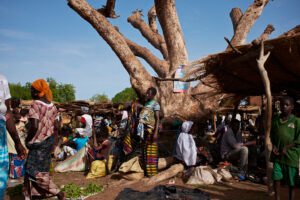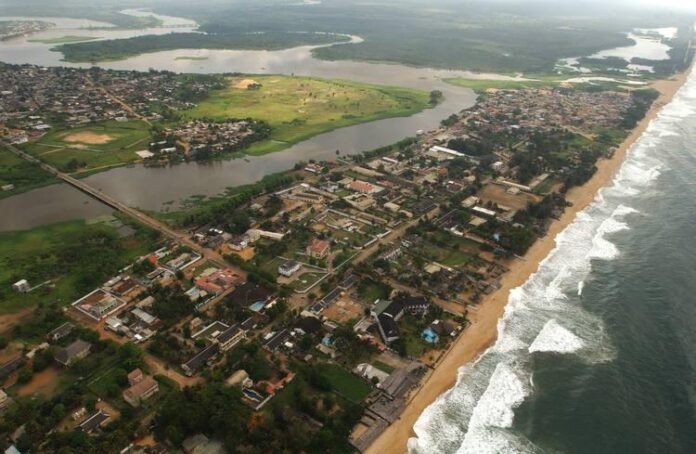Burkina Faso’s health insurance system is undergoing a significant transformation, especially with the rollout of the Régime d’Assurance Maladie Universelle (RAMU), which aims to provide widespread health coverage. As public health insurance continues to develop under national policy, private health insurance remains limited, with a small but emerging role in urban and expatriate communities. Both systems have distinct features, though they share some goals and operational overlaps.
Public Health Insurance: RAMU and CNAMU
The public health insurance system is primarily governed by RAMU, with oversight from the Caisse Nationale d’Assurance Maladie Universelle (CNAMU). RAMU is designed to achieve universal health coverage by 2025, targeting both formal and informal sector workers. It includes a wide basket of essential health services such as general consultations, hospitalization, surgical interventions, and diagnostic tests. While patients under RAMU contribute through a co-payment system (30% of service costs), the scheme is heavily subsidized by the government, which plans to invest 30 billion CFA francs (~€45 million) to support its expansion.
A distinguishing feature of the public system is its inclusion of vulnerable populations, including rural residents and internally displaced persons, through government-funded and internationally supported community health programs. RAMU also leverages digital systems for service verification and is backed by strong legal frameworks, ensuring accountability and gradual systemization.
Private Health Insurance: Limited Reach and Urban Focus
In contrast, private health insurance in Burkina Faso is considerably less structured and less accessible. It primarily serves urban populations and formal sector employees. Most private plans are offered by mutual health organizations (mutuelles de santé), which are community-based schemes often supported by NGOs. Coverage is usually limited to basic outpatient and inpatient services, and plans are often voluntary rather than mandatory.
Large private companies may provide employer-sponsored insurance, but this remains a niche benefit. International private insurers like Allianz and Cigna operate in the country mainly to serve expatriates or higher-income groups, offering comprehensive plans that include overseas treatment options. However, due to high costs and limited availability, these plans are not accessible to the average Burkinabé citizen.
Similarities and Overlaps
Despite their differences, public and private insurance in Burkina Faso share a few common goals. Both seek to improve healthcare access and reduce financial barriers to medical treatment. Mutual health organizations, though technically private, often align with public objectives by extending services to underserved communities, especially with international donor support. Additionally, both systems depend on a network of healthcare providers that includes public and private facilities, fostering some integration in service delivery.
Top Public Health Insurance Options in Burkina Faso
Burkina Faso’s public health insurance system is still evolving, aiming to provide broader access to healthcare while improving service quality and financial protection. Unlike more developed nations, Burkina Faso has a more limited number of public health insurance schemes, with most coverage centered around government initiatives. The most notable and structured public health insurance is the Régime d’Assurance Maladie Universelle (RAMU), with additional support from sector-specific programs. Here are the key public health insurance options currently available in Burkina Faso:
1. Régime d’Assurance Maladie Universelle (RAMU)
Cost: Subsidized by the government; minimal premiums for enrollees based on income.
Available Services/Coverage Features:
- Primary care
- Emergency services
- Maternal and child health
- Basic prescription medications
- Essential surgeries
Open for All or Limited: Open to all citizens, with gradual implementation in phases.
Core Financial Features: - Funded through government budgets and donor contributions
- Contributions from formal sector employees and voluntary enrollment for informal workers
Consumer Satisfaction Score: 3.8/5
Overview: RAMU is Burkina Faso’s flagship universal health coverage program launched to address healthcare inequality. Though still in its early stages of nationwide implementation, it reflects a growing commitment to public healthcare access. However, some rural and informal workers report access and service quality issues, affecting overall satisfaction.
2. Mutuelles de Santé Communautaires (Community-Based Health Insurance Schemes – CBHIS)
Cost: Low premium payments set by the local community, usually under CFA 2,000 (approx. USD 3) per month.
Available Services/Coverage Features:
- Basic outpatient services
- Child and maternal health
- Preventive services and health education
Open for All or Limited: Available to community members who choose to enroll voluntarily.
Core Financial Features: - Operates on a pooling mechanism
- Partially subsidized by NGOs or government grants
- Members contribute premiums directly
Consumer Satisfaction Score: 3.5/5
Overview: CBHIS is a decentralized insurance model tailored to rural and semi-urban populations. Although coverage is limited to basic health services and preventive care, affordability and local governance are key strengths. However, service limitations and management inconsistencies slightly affect user trust and satisfaction.
3. Assurance Maladie des Agents de l’État (AMAE)
Cost: Contributions are deducted from government employee salaries.
Available Services/Coverage Features:
- Comprehensive healthcare for public servants and their families
- Includes specialist consultations, hospitalization, and chronic disease management
Open for All or Limited: Only for civil servants and their immediate families
Core Financial Features: - Mandatory payroll-based contributions
- State-supported with co-financing arrangements
Consumer Satisfaction Score: 4.1/5
Overview: AMAE offers robust coverage for public sector workers and is seen as one of the more reliable insurance options in Burkina Faso. Beneficiaries appreciate the extensive coverage and access to better healthcare facilities, leading to a relatively high satisfaction score.
Top Private Health Insurance Providers in Burkina Faso
The private health insurance market in Burkina Faso is relatively small but growing, primarily serving urban residents, expatriates, and individuals seeking more comprehensive or expedited healthcare services than what public schemes provide. These private insurers tend to focus on individuals with higher incomes or those employed by large corporations. While choices are limited, a few key players offer notable options for private coverage in the country. Below are the leading private health insurance providers currently operating in Burkina Faso:
1. SONAR Assurances (Société Nationale d’Assurances et de Réassurances)(Official Website: https://www.sonar.bf/)
Cost: Varies by plan; typically ranges between CFA 10,000 and CFA 100,000/month (approx. USD 16–160).
Available Services/Coverage Features:
- Outpatient and inpatient care
- Maternity services
- Dental and optical care
- Emergency medical evacuation
- Specialist consultations
Open for All or Limited: Open to individuals, families, and businesses
Core Financial Features: - Premiums based on age, health status, and plan tier
- Offers employer-sponsored group packages
Consumer Satisfaction Score: 4.2/5
Overview: As one of Burkina Faso’s most established insurers, SONAR is known for broad network access and relatively quick claim processing. Clients appreciate the range of coverage options and access to partner clinics and hospitals.
2. UAB Assurances (Union des Assurances du Burkina)(Official Website: https://uabassurances.net/)
Cost: Starts around CFA 12,000/month for basic plans (approx. USD 19); premium plans cost significantly more
Available Services/Coverage Features:
- General medical care
- Hospitalization and surgery
- Maternity and newborn care
- Pharmaceutical coverage
Open for All or Limited: Open to individuals and corporations
Core Financial Features: - Tiered premium structures
- Discounts for group and corporate clients
Consumer Satisfaction Score: 3.9/5
Overview: UAB Assurances is well-regarded among professionals and mid-sized enterprises. While coverage options are robust, some users note delays in reimbursements and limited international coverage.
3. ALLIANZ Burkina Faso(Official Website: https://www.sunu-group.com/en/home)
Cost: Premium plans start from CFA 15,000/month (approx. USD 24), with higher-tier plans costing significantly more depending on benefits.
Available Services/Coverage Features:
- Comprehensive medical, surgical, and diagnostic coverage
- International medical assistance
- Dental, vision, and wellness options
- Health screenings and chronic disease management
Open for All or Limited: Open to individuals and corporate clients
Core Financial Features: - Premiums calculated by risk category and coverage levels
- Options for international travel or expat coverage
Consumer Satisfaction Score: 4.5/5
Overview: As a global insurance brand, Allianz provides some of the highest-quality health plans available in Burkina Faso. It’s especially popular with expatriates and corporate executives, offering excellent support services and access to a global care network.
4. SUNU Assurances Santé(Official Website: https://www.yelen-assurance.com/)
Cost: From CFA 8,000 to CFA 60,000/month (approx. USD 13–95), based on individual vs. family coverage
Available Services/Coverage Features:
- Preventive and curative care
- Maternity and pediatric care
- Diagnostic testing
- Surgical procedures
Open for All or Limited: Open to individuals and businesses
Core Financial Features: - Monthly or annual payment options
- Customizable plans for SMEs and NGOs
Consumer Satisfaction Score: 3.8/5
Overview: SUNU Assurances Santé is known for flexibility and affordability. Though more limited than Allianz in scope, it provides solid coverage for general healthcare needs and enjoys moderate satisfaction levels among local clients.
READ MORE: Private and public health insurance of Albania (Make informed choices)


